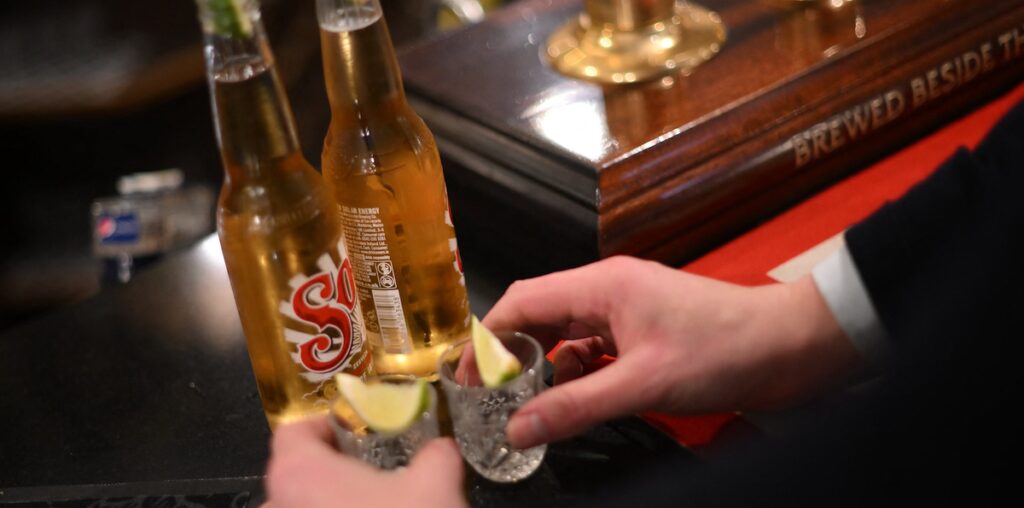
Your support helps us to tell the story
From reproductive rights to climate change to Big Tech, The Independent is on the ground when the story is developing. Whether it’s investigating the financials of Elon Musk’s pro-Trump PAC or producing our latest documentary, ‘The A Word’, which shines a light on the American women fighting for reproductive rights, we know how important it is to parse out the facts from the messaging.
At such a critical moment in US history, we need reporters on the ground. Your donation allows us to keep sending journalists to speak to both sides of the story.
The Independent is trusted by Americans across the entire political spectrum. And unlike many other quality news outlets, we choose not to lock Americans out of our reporting and analysis with paywalls. We believe quality journalism should be available to everyone, paid for by those who can afford it.
Your support makes all the difference.
London pubs are facing backlash after reports reveal a vital safety codeword scheme, designed to support customers in distress, is not being properly implemented.
An investigation found that staff at pubs, bars, and clubs signed up for the initiative are often ignoring the codeword, where a customer in need says “Angela” to discreetly signal for help.
The “Ask for Angela” scheme, aimed at making nightlife safer, especially for vulnerable women, has been adopted by thousands of venues across the country but is reportedly falling short in practice.
Helena Conibear, chief executive of anti-spiking charity, Alcohol Education Trust, told The Independent that some staff members are not being properly trained on how to roll out the scheme.
Secret filming by BBC journalists discovered staff failed to react to the code word in half of the London venues they went to – with leading chains included in this – with the corporation receiving reports of similar problems from around the UK.
I am shocked. We do need schemes like this so I don’t want to denigrate the scheme but it has just got to be implemented properly.
Helena Conibear
Ms Connibear said: “The scheme in itself is really good but it is not something which should be taken lightly or for anyone to pay lip service to and this is essential if it is going to be trusted.”
She warned training isn’t being rolled out on the ground as she called for all customers to be able to know they will be helped if they go and ask for Angela.
Ms Connibear said the initiative is “absolutely essential” for those who have been spiked – adding that if we are to champion it, we must be able to trust it.
“I am surprised this is the case as it appears to be a very well-run scheme,” she added. “I am shocked. We do need schemes like this so I don’t want to denigrate the scheme but it has just got to be implemented properly.”
The Ask for Angela initiative – which is in action at thousands of venues in England – is named after Angela Crompton, who was murdered by her husband. Workers are supposed to discretely step in when they hear the code word and get the person to safety – either by taking them to their friends, ringing a taxi, or getting in touch with the police if needed.
Sexual harassment is about having your choices taken away and being silenced. Any response model which, intentionally or otherwise, replicates both of these feelings for a victim, will need work to be effective in practice.
Bryony Beynon
Bryony Beynon, co-founder of campaign group Good Night Out, said they “have been campaigning for gendered violence prevention to be a licensing requirement for ten years, but we have major concerns about councils tying this specifically to code word-based response models”.
She added: “As the BBC investigation sadly shows, this approach can end up turning what should be an essential safety priority into a tick box exercise.
“Sexual harassment is about having your choices taken away and being silenced. Any response model which, intentionally or otherwise, replicates both of these feelings for a victim, will need work to be effective in practice.”
Ms Beynon argued they have too often seen that a “light-touch implementation” of the scheme “can lead to a policy of ‘just call her a taxi,’ banishing victims while leaving perpetrators unchallenged”, adding that this “dangerous and unfair”.
She said: “We welcome the conversation, and want to underline that busy, overworked and underpaid nightlife staff should not be individually blamed for these failures.”
Sylvia Oates, national director of the not-for-profit, Ask for Angela, told The Independent they are concerned by the BBC investigation’s findings – adding “there is work to be done” and it is unacceptable for venues to advertise the scheme yet not train staff.
She said training staff to be able to implement the initiative is a “reasonable example of a proportionate and fair expectation on venues in supporting vulnerable individuals”.

